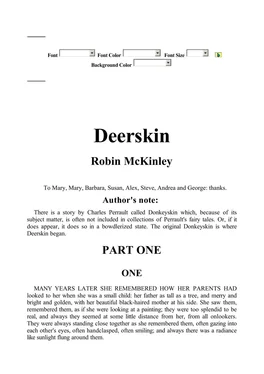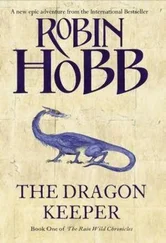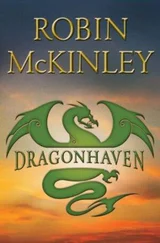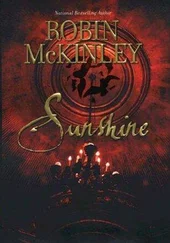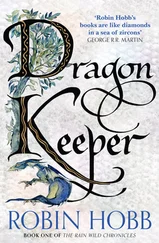Deerskin - Robin McKinley
Здесь есть возможность читать онлайн «Deerskin - Robin McKinley» весь текст электронной книги совершенно бесплатно (целиком полную версию без сокращений). В некоторых случаях можно слушать аудио, скачать через торрент в формате fb2 и присутствует краткое содержание. Жанр: Старинная литература, на русском языке. Описание произведения, (предисловие) а так же отзывы посетителей доступны на портале библиотеки ЛибКат.
- Название:Robin McKinley
- Автор:
- Жанр:
- Год:неизвестен
- ISBN:нет данных
- Рейтинг книги:4 / 5. Голосов: 1
-
Избранное:Добавить в избранное
- Отзывы:
-
Ваша оценка:
- 80
- 1
- 2
- 3
- 4
- 5
Robin McKinley: краткое содержание, описание и аннотация
Предлагаем к чтению аннотацию, описание, краткое содержание или предисловие (зависит от того, что написал сам автор книги «Robin McKinley»). Если вы не нашли необходимую информацию о книге — напишите в комментариях, мы постараемся отыскать её.
Robin McKinley — читать онлайн бесплатно полную книгу (весь текст) целиком
Ниже представлен текст книги, разбитый по страницам. Система сохранения места последней прочитанной страницы, позволяет с удобством читать онлайн бесплатно книгу «Robin McKinley», без необходимости каждый раз заново искать на чём Вы остановились. Поставьте закладку, и сможете в любой момент перейти на страницу, на которой закончили чтение.
Интервал:
Закладка:
She was also, now, often faintly nauseated. She did not vomit again-because she did not let herself. She set her will to this, and her will responded. She and Ash did not have any food to waste, and so she did not waste it. But what this meant in practice was that her meals often took a very long time, as she had to eat mouthful by slow mouthful and dared swallow again only after the last bit declared its intention to remain quietly in her belly, and her belly declared itself willing to cooperate. Even so, twice or three times, she miscalculated, and found herself on her knees, her mouth clamped shut and her hands tight over both nose and mouth, while her stomach tried to heave its contents out and away from her. I will not, she thought fiercely, eyes and nose streaming and throat raw. I will not. And she didn't.
Ash's eyes grew bright and her coat again shone. "Rotten meat and moldy onions agree with you," said Lissar affectionately, and Ash rose gracefully on her hind legs and kissed her on the nose. Ash now spent some time outdoors every day; Lissar loved to watch her.
Ash would pause at the edge of the porch, looking around her, as if for bears or toro; and then she would bound joyously out into the open ground. She disappeared to her high-held head when she sank into the deepest drifts of snow over hidden concavities, but she emerged again with each astonishing kick of her muscular hind legs, the snow falling off her like stars, and seemed to fly, her legs outstretched in her next bound, much farther than any simple physical effort, however powerful, could be responsible for; till she came gracefully down again, her front feet pointed as perfectly as a dancer's. And she sank into the snow again, only to leap out.
Lissar had made herself a very rough dress by cutting a hole in the lightest of the blankets, and poking her head through it. Her own clothing had largely disintegrated under the stress of washing; some flannel strips she salvaged, and some bigger swatches of the cloak, but no more. One of the strips she now used as a belt. With the coat, mittens and hat, the latter tied with another flannel strip in such a way that it could not swallow her entire head and blind and smother her, Lissar ventured at last out into the meadow. Her hip was a little better, or perhaps it was that the walls of the little cabin seemed to press in around a shrinking space. The boots were so large that she could not pick her feet up, but had to shuffle, or wade, sliding one foot after the other, even though she padded them somewhat with more of the ubiquitous flannel strips. Awkwardly she dug a path all the way around the hut with the shovel, but left the meadow for Ash.
The hut was set at one end of the clearing, and the snow was much less under the trees; in places the ground was almost bare, and Lissar could walk, or could have walked if the boots had let her. She followed a curve of ground downhill one day into a cleft and found a stream, not quite frozen; followed the stream a little way till it emerged from the cleft and wandered out into a clear space that Lissar could recognize from the patchy look of the snow-cover as a swamp. Here she found cattails still standing, and another of the lessons she had learnt from Rinnol came back to her. But it had been a long walk-too long-and she was limping badly by the time she got back to the meadow.
Ash met her on the porch that day, tail high and waving proudly back and forth-and a rabbit in her mouth. As Lissar waded up to her, she laid it at Lissar's amazed feet.
She watched hopefully as Lissar wrestled, messily and only somewhat effectively, with disembowelling and then skinning it. Lissar gave her the entrails, which disappeared in one gulp, and then Lissar had to sit down with her head between her knees for a few minutes. The mouse had not prepared her enough.
The soup that night was almost stew; and while it tasted a little odd, Lissar didn't know whether this had to do with her lack of hunterly skills or with the fact that she had forgotten what fresh meat tasted like. Ash made no complaints. Ash seemed to have a mysterious preference for cooked meat.
The next day, Lissar found her way back to the swamp, and came home with not only cattails, but a little borka root, which she had dug up where the boggy ground remained unfrozen, and a few stubborn illi berries that still held to their low pricky bushes. Her hip, and the shoulder and wrist of her weak arm, throbbed so that night that she found sleeping difficult; but it had been worth it.
Lissar's spirits began to lift, in spite of the nagging bouts of nausea. Her days and Ash's fell into almost a schedule. In the mornings, Lissar began the meal that would be their supper, putting bread dough together to rise, cutting up the solid bits that would go into the stew, melting snow for water, deciding if she could spare the bucket to make soup in or whether she needed to use the less reliable method of burying a lidded bowl in the ashes and hoping the contents would cook. Near noon, when the sun was as high and warm as it would get, Lissar would let Ash out, and when she disappeared into the trees Lissar waded, stiffly, around the house to fetch more wood, and to break up some of it, awkwardly and one-handed, for kindling. If the weather was fine and Lissar was feeling strong enough, she went foraging also, sometimes following Ash's tracks for a little way, sometimes returning to the marsh to see what she could scavenge. When she was feeling slow and sick, or when the sky was overcast and the wind blew, she stayed indoors, trying to piece the rags that had once been a flannel petticoat and shirt into something useful, or sewing the hems of her dress-blanket together that it might keep the wind out more effectively; or sweeping the floor; or, once a week, giving herself a bath. Since her first bath she had been making an effort to pay better, more thoughtful attention to her physical self, although it was still an odd discipline. She often thought of her body as a thing, as something other than herself, whose well-being and good intentions were necessary to her, but still apart from her essential self. But this distance was helpful more than it was alienating, or so she experienced it, for it helped her bear the pains of the lingering wounds she did not remember the origins of.
It occurred to her after a time that a sling might help her arm, and so she made a rough one, and her arm began to hurt less; at the least the sling reminded her to treat it gently. She did not know what to do for her hip, or for the sudden waves of nausea, or for one or two of the sores that never quite grew dangerously infected, but which went on being a little swollen, a little tender, a little oozy.
After her first rabbit, Ash brought rabbits, or squirrels, or ootag, or other small furry four-footed things Lissar did not have the name for, now and then, just often enough that one of Lissar's worst fears was assuaged, and she began to believe that they would not run out of food before the winter ended. The cattail flour, and the borka root, which was very filling when stewed, although it tasted rather the way Lissar imagined mud would taste, also helped. And she really didn't care what it tasted like. What mattered was that she and Ash were going to come through. The pleasure and satisfaction this thought gave surprised her. But pleasure was so rare an event for her that she returned to it often: that they would come through.
THIRTEEN
IF THE WINTER EVER ENDED. LISSAR STILL COULD NOT THINK
ABOUT the future. She knew in theory that winter came to an end, and was followed by spring, and the snow and ice would melt, and the world would be warm and green again, and she remembered that the green stems of the borka were delicious. But the idea of spring-of warmth, of an end to whiteness and silence-seemed distant to her, as distant as the life she must once have led, in seasons other than winter, that she now recollected so little of. She even feared spring a little, as if the turning of the seasonsher direct experience of the rolling year-would wheel that life back to her somehow, that she would have as little say in it as she had in the weather.
Читать дальшеИнтервал:
Закладка:
Похожие книги на «Robin McKinley»
Представляем Вашему вниманию похожие книги на «Robin McKinley» списком для выбора. Мы отобрали схожую по названию и смыслу литературу в надежде предоставить читателям больше вариантов отыскать новые, интересные, ещё непрочитанные произведения.
Обсуждение, отзывы о книге «Robin McKinley» и просто собственные мнения читателей. Оставьте ваши комментарии, напишите, что Вы думаете о произведении, его смысле или главных героях. Укажите что конкретно понравилось, а что нет, и почему Вы так считаете.
